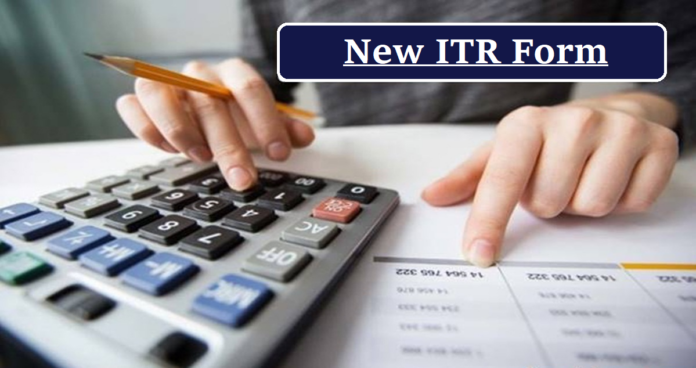If a taxpayer has sold land or building between April 1, 2021 and March 31, 2022, it is necessary for them to enter the purchase and sale dates in the ‘Capital Gains’ schedule of the ITR form from this year onwards.
New Delhi: Recently, the income tax department notified the income tax return (ITR) forms for FY 2021-22 or AY 2022-23. While there have been no major changes announced, there are still some revisions in the forms that a taxpayer must be aware of while filing ITR.
This year, taxpayers will have to fill the following additional information while filing their return:
1- Nature of pensioners further categorized
The ITR forms for FY 2021-22 need pensioners to further specify the source of their pension. In the ‘Nature of Employment’ drop-down menu, they are required to choose as follows:
a) Pensioners – CG for central government pensioners
b) Pensioners – SC for state government pensioners
c) Pensioners – PSU for individuals receiving pension from public sector companies
d) Pensioners – Others. This includes pension received by individual as family pension, EPF etc.
2- Taxable interest accrued on EPF accounts
If an employee’s contribution to the Employees’ Provident Fund (EPF) account goes beyond Rs 2.5 lakh in a financial year, the interest earned on the excess contribution will be taxable in the hands of the employee. Such interest needs to be reported in Schedule OS (other sources).
3- Date of purchase and sale of land/building
If a taxpayer has sold a land or building between April 1, 2021 and March 31, 2022, it is necessary for them to enter the purchase and sale dates in the ‘Capital Gains’ schedule of the ITR form from this year onwards.
4- Year-wise details of cost of improvement to land/building
Any renovation or improvement done on house property will be taken as cost. This cost has to be indexed and deducted from the sale price to calculate long-term capital gains. This information has to filled in by the taxpayer while filing their ITR.
5- Details of cost of acquisition and indexed cost of acquisition
This year, individuals will have to give both original cost of acquisition and indexed cost of acquisition.
6- Additional information to support residential status
If a taxpayer is filing their return using ITR-2 or ITR-3, they will have to choose the relevant option in support of your residential status. The options that one is required to choose from are self-explanatory.
7- Reporting of tax-deferred on ESOPs
A startup employee can defer the payment or deduction of tax with respect to shares allotted under ESOPs. If an employee opts for this, they have to report the deferred tax amount in the ITR. The taxpayer will be required to provide the following information:
a) Amount of tax deferred in FY 2020-21 or AY 2021-22,
b) Date of sale of specified securities and amount of tax credit to such sale,
c) Date on which he/she ceased to be an employee,
d) Amount of tax payable in FY 2021-22, and
e) Balance amount of tax deferred to be carried forward to next assessment years.
8- Foreign assets and income earned on them
Any individual holding foreign assets must report any income earned from it by way of a dividend, interest etc. For this, the taxpayer can use ITR-2 or ITR-3 as applicable to them. Any foreign assets held during the calendar year 2021 is mandatorily required to be reported in the ITR.
9- Details of the property sold outside India
In case an individual has sold a property outside India, they will be needed to furnish details of the buyer and complete address of the property sold.


